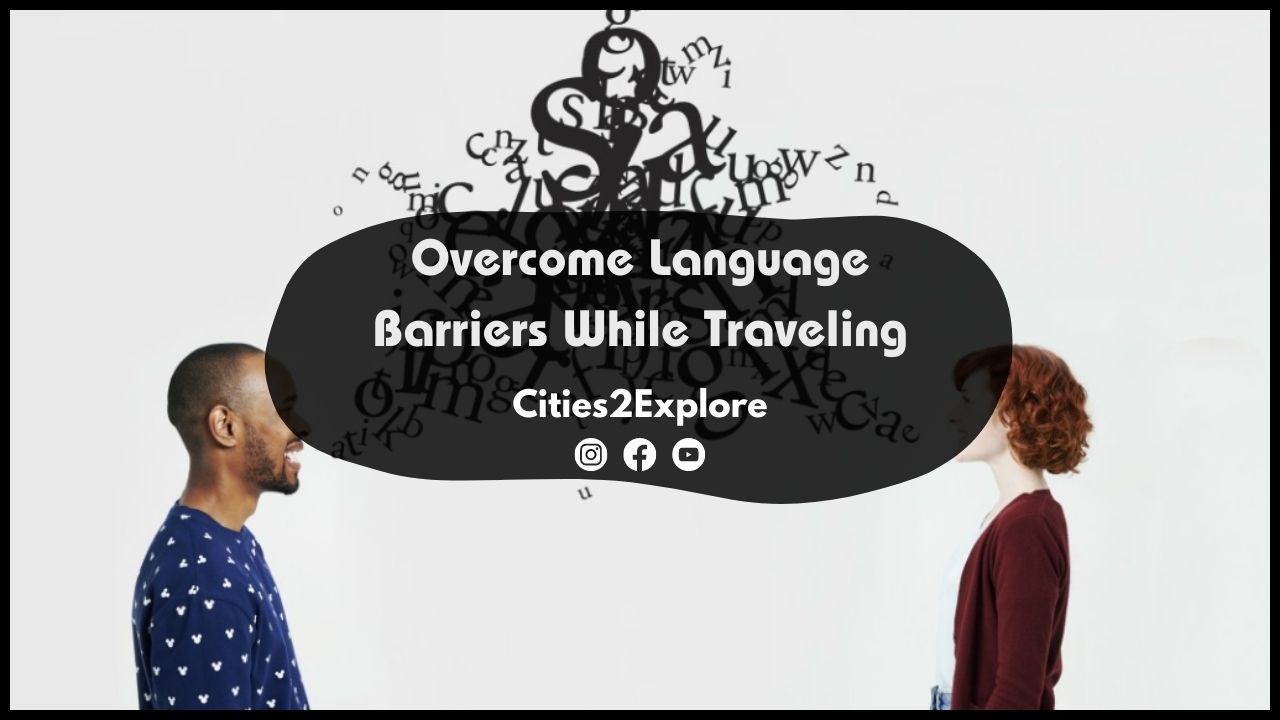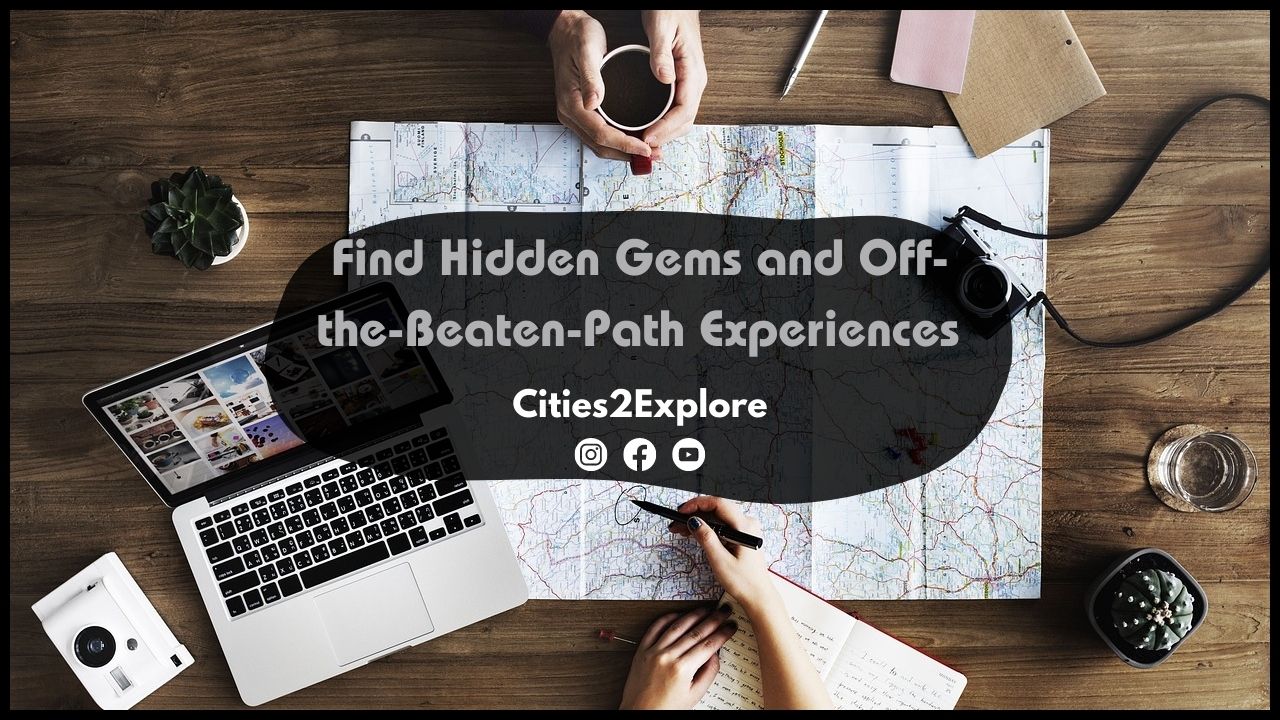As you embark on your exciting journey to a foreign country, one of the biggest challenges you may encounter is the language barrier. Communication plays a vital role in connecting with locals, immersing yourself in the local culture, and ensuring a smooth travel experience. In this article, we will explore effective strategies to help you overcome language barriers and make the most out of your travels.

Traveling to a foreign country brings numerous joys and adventures, but it can also be frustrating when you don’t speak the local language. Language barriers can hinder effective communication, limit your interactions with locals, and potentially lead to misunderstandings. However, with the right approach and preparation, you can navigate through these challenges and unlock incredible experiences during your journey.
Pre-Trip Preparation
A. Learn Basic Phrases and Expressions
To ease your way into the local culture, start by learning a few essential phrases and expressions. This includes common greetings, polite expressions, and key phrases for directions, transportation, and emergencies. Even a basic understanding of the local language can go a long way in establishing connections and showing respect to the locals.
B. Study the Local Language and Culture
Before your trip, take the time to familiarize yourself with the language spoken in the destination country. Learn about its pronunciation, grammar, and basic vocabulary. Understanding the cultural norms, customs, and etiquette will also help you navigate social interactions more effectively.
C. Utilize Language Learning Apps and Tools
Make use of the technology available to enhance your language skills. Explore language learning apps and websites that offer interactive lessons, vocabulary practice, and pronunciation exercises. Additionally, seek out language exchange opportunities with native speakers through language learning platforms or local conversation groups.
Communication Strategies
A. Non-Verbal Communication
When words fail, non-verbal communication becomes crucial. Pay attention to body language, gestures, and facial expressions, as they often convey meaning beyond words. However, be mindful of cultural differences in non-verbal communication, as certain gestures or expressions may have different interpretations in different countries.
B. Simplify Your Speech
When attempting to communicate in a foreign language, speak slowly and clearly. Use simple vocabulary and sentence structures to ensure better understanding. Avoid using complex slang or idiomatic expressions that may confuse the listener. Remember, clarity is key.
C. Utilize Visual and Written Communication
Carry a pocket-sized phrasebook or install a translation app on your phone. These resources can be a lifesaver when you need to convey a specific message or understand important information. In addition, utilize visual aids such as maps, pictures, or symbols to supplement your verbal communication. If all else fails, you can write down key information or questions on paper to ensure effective communication.
D. Seek Assistance from Locals and Tourists
Don’t hesitate to approach friendly locals or fellow travelers for help or guidance. Locals can provide valuable insights, recommendations, and assistance when you find yourself in a language-related dilemma. Engage in conversations with locals to practice the language and gain a deeper understanding of the local culture. Hotel staff, tour guides, or local authorities are also excellent sources of information and can assist you in overcoming language barriers.
Technological Resources
A. Translation Apps and Devices
Technology has made overcoming language barriers more accessible than ever. Explore translation apps that offer offline capabilities, allowing you to translate words, phrases, and even have real-time conversations without an internet connection. Consider portable language translation devices that provide immediate translations in various languages. Voice recognition software can also assist in spoken translations, enabling smoother communication.
B. Language Learning Podcasts and Videos
Immerse yourself in the language before your trip by listening to language learning podcasts. These podcasts offer lessons, conversations, and cultural insights that help you familiarize yourself with the language’s rhythm and intonation. Additionally, instructional videos or language lessons available online can be valuable resources for self-study.
Cultural Sensitivity and Adaptability
A. Respect Local Culture and Customs
Language is deeply intertwined with culture, so it’s crucial to respect local customs and traditions. Take the time to learn about the local culture, including appropriate behavior, greetings, and customs. Adapting your behavior and dress to align with cultural norms shows respect and fosters positive interactions.
B. Embrace Patience and Understanding
Language barriers may lead to occasional misunderstandings or challenges. Embrace patience and understanding as you navigate through these situations. Remember that making an effort to communicate, even with limited language skills, often elicits appreciation from locals. Maintain a positive and open-minded attitude, and be willing to learn from every interaction.
Additional Tips and Resources

A. Utilize Translation and Language Learning Websites
Online resources can provide additional support in overcoming language barriers. Explore translation websites that offer extensive language dictionaries and tools. Participate in language forums and communities where you can seek advice, share experiences, and find valuable tips for improving your language skills.
B. Carry a Phrasebook or Language Guide
In addition to using digital resources, carrying a pocket-sized phrasebook or language guide can be immensely helpful during your travels. These physical resources provide quick reference points and can supplement your language learning efforts.
C. Take Language Classes or Workshops
If you have the time and opportunity, consider enrolling in language classes or workshops before your trip. Learning from experienced teachers and practicing with fellow learners can significantly improve your language skills. Additionally, attending language exchange events or conversation groups allows you to interact with native speakers and gain practical experience.
Conclusion
Overcoming language barriers while traveling opens doors to meaningful connections and unforgettable experiences. By learning basic phrases, utilizing technology, embracing cultural sensitivity, and employing effective communication strategies, you can navigate through language obstacles and make the most out of your journey. Embrace the challenges, be open to learning, and remember that language is not just a means of communication but a bridge that connects cultures and enriches your travel experiences.
FAQs (Frequently Asked Questions) about Overcoming Language Barriers While Traveling
What if no one understands me?
Language barriers can sometimes be challenging, but don’t be discouraged. Stay patient, use non-verbal communication, and seek assistance from locals or fellow travellers who may be able to understand or help you.
How can I overcome language anxiety?
Language anxiety is common when communicating in a foreign language. Practice, prepare, and remind yourself that making an effort to communicate is appreciated by locals. Start with basic phrases and gradually build your confidence.
Are there any cultural taboos I should be aware of when attempting to communicate?
Each culture has its own unique set of customs and taboos. Research and learn about the local culture to avoid inadvertently offending anyone. Respectful behavior and a willingness to learn go a long way in fostering positive interactions.
Can I get by with just English in popular tourist destinations?
While English is widely spoken in many popular tourist destinations, it’s always beneficial to learn a few basic phrases in the local language. Locals often appreciate the effort and it can enhance your travel experience.
Read other interesting articles:
- Mastering Travel Language: Your Ultimate Guide To Learning Basic Phrases In The Local Language Before Your Trip
- What Are The Best Tips For Traveling With Pets?
- Exploring Majnu Ka Tila: A Journey into the Heart of Tibetan Culture
- 600 Millions Year Old Ramgarh Crater: A Window into Earth’s Geological History
- 11 Travel Essentials List You Need on Your Trip
- 7 Best Places to visit in Diwali Vacation in India
- How To Plan A Successful Solo Backpacking Trip
- Golghar Patna – Facts, History, Timings
- 11 Best Places To Visit in Patna
- 9 Best places to visit in Ranchi | Ranchi Tourist Attractions
- 11 Best Places to Visit in Rishikesh – Exploring City of Yoga
- Stay Safe While Traveling Alone: Essential Tips For Solo Travelers





